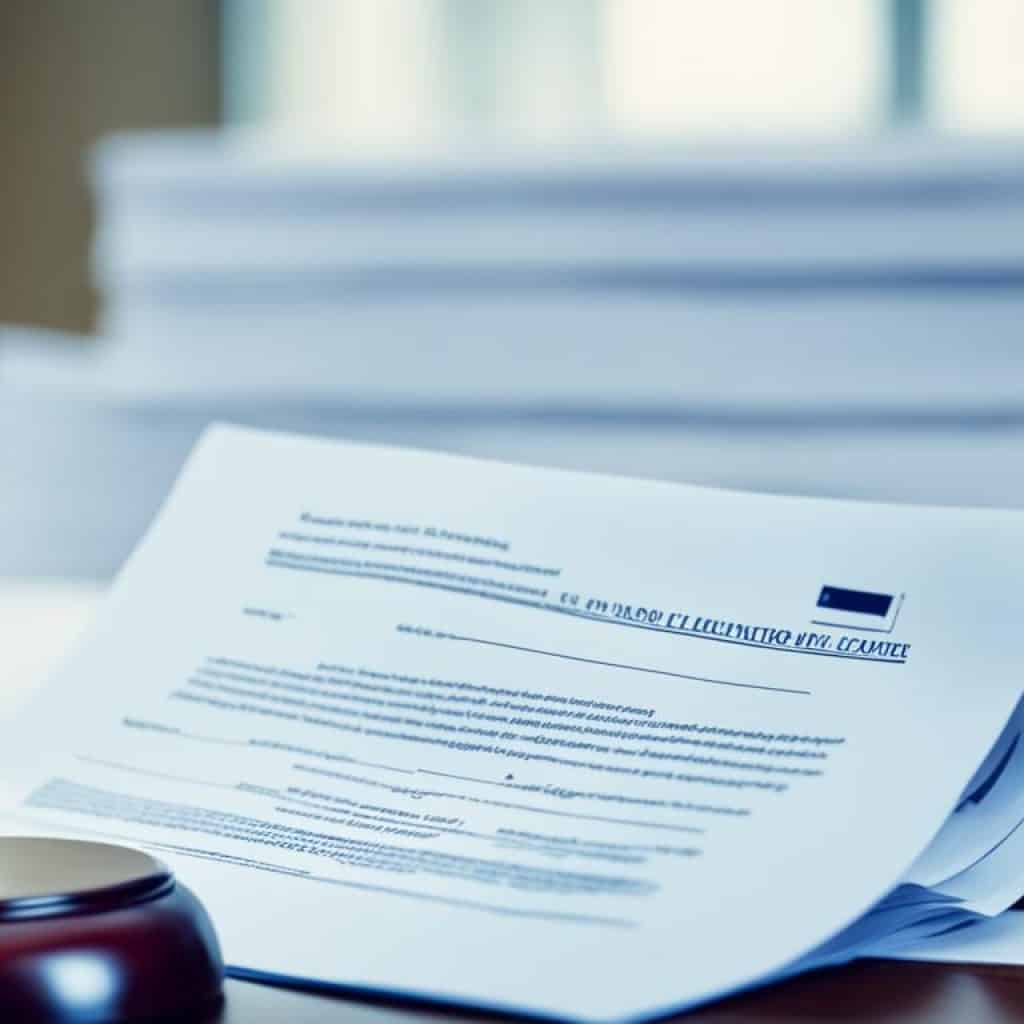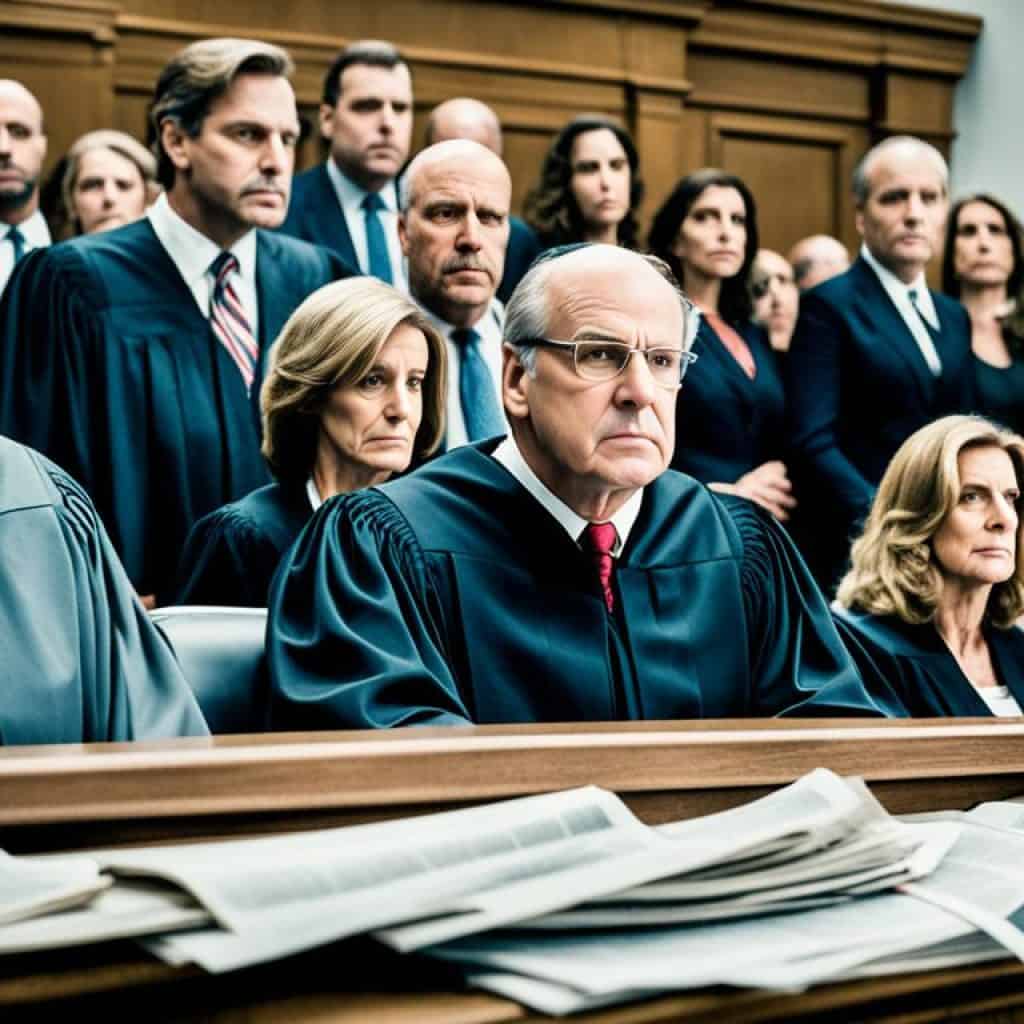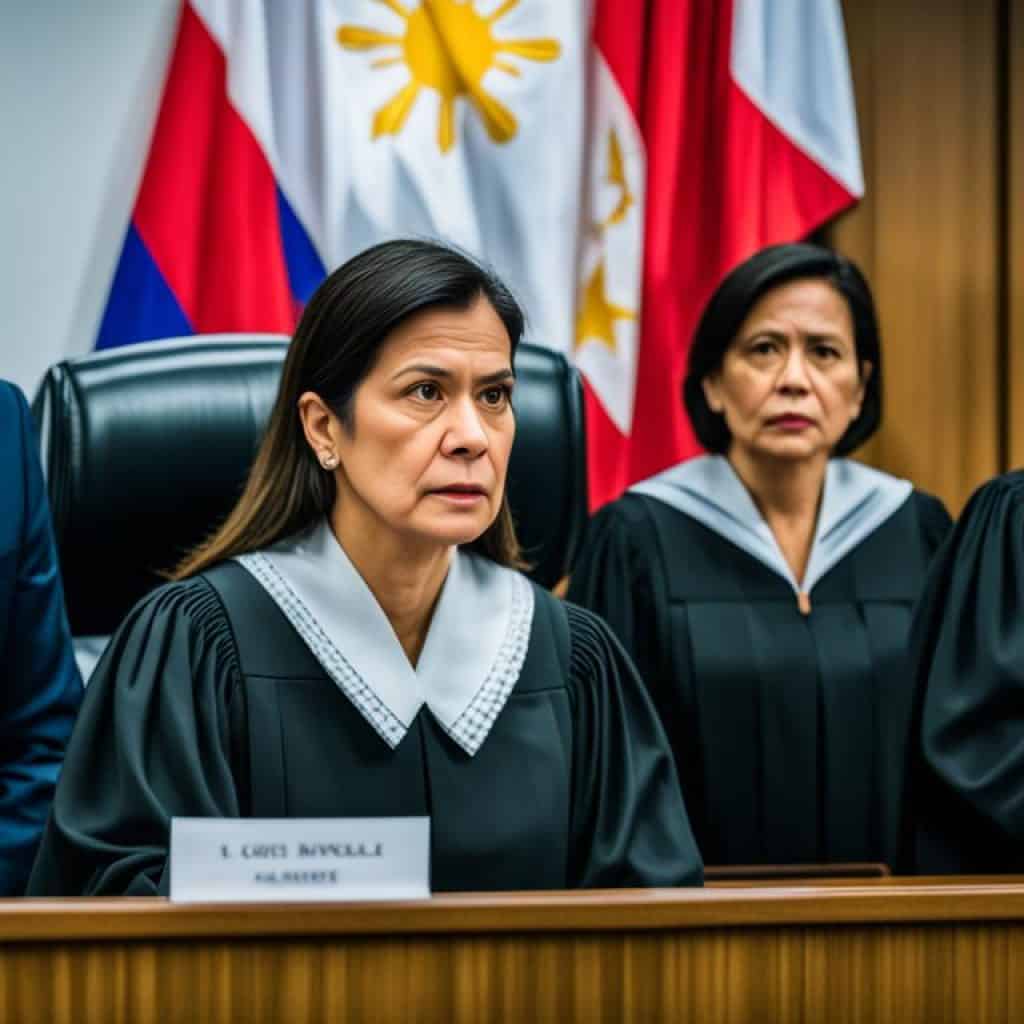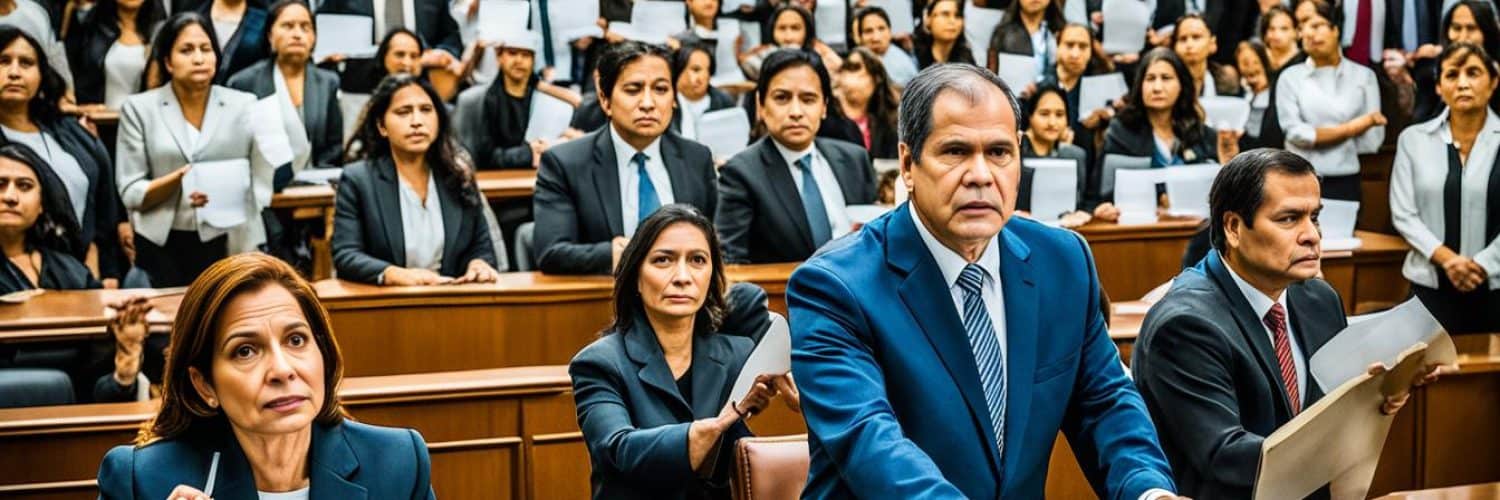Have you ever wondered about the legal implications of spreading false information that could damage someone’s reputation? In the Philippines, libel cases have serious consequences and navigating through the complexities of Philippine libel laws can be challenging.
Under Article 353 of the Revised Penal Code, libel is considered a criminal offense. It involves the public and malicious imputation of a crime, vice, or defect, whether real or imaginary, that may harm someone’s reputation. Being accused of libel can have far-reaching consequences, both legally and personally.
But what exactly are the legal implications of a libel case in the Philippines? What criteria are considered when determining whether a statement is defamatory? And what defenses are available to individuals who find themselves in the midst of a libel case?
In this article, we will dive into the details of libel cases in the Philippines, providing you with a comprehensive understanding of the legal framework, the impact of libel on reputation, and the potential defenses available to those involved. So, are you ready to explore the world of libel laws in the Philippines?
Key Takeaways:
- Libel is a criminal offense under Philippine law, defined by the public and malicious imputation of a crime, vice, or defect that may harm someone’s reputation.
- Libel cases in the Philippines have specific criteria and procedures for filing, and the venue is typically where the libelous material was printed or first published.
- Consulting with a legal professional is crucial when dealing with a libel case, as they can provide guidance on the strength of your case and navigate the legal proceedings.
- There are various defenses available in libel cases, such as absence of defamatory imputation, absence of malice, absence of publication, and absence of identifiability of the victim.
- The impact of the internet and social media has added complexities to libel cases, making it important to adapt legal strategies to account for online defamation.
Legal Overview of Libel Cases
In the Philippines, libel is a criminal offense as defined under Article 353 of the Revised Penal Code. It encompasses the malicious public imputation of a real or imaginary crime, vice, or defect that can damage someone’s reputation.
When it comes to filing a libel case, specific criteria and procedures must be followed. Additionally, the complaint should be filed in the appropriate venue based on where the libelous material was printed or first published.
Assessing a Statement for Libel
When dealing with a potential libel case, it is crucial to assess the statement critically. By carefully analyzing the nature of the statement, its potential impact on one’s reputation or the reputation of the person involved, and considering the criteria set by Philippine libel laws, you can determine the viability of pursuing legal action.
Start by documenting the statement in question and gathering any evidence of its publication and distribution. This may include screenshots, copies of articles, or any other material that supports your claim. By preserving this evidence, you can build a strong case and demonstrate the credibility of your claims.
Consider the context in which the statement was made. Was it a passing comment or a deliberate attempt to harm someone’s reputation? Assess the intent behind the statement, determining whether it was malicious or made with a genuine belief in its truthfulness.
“A false statement can cause irreparable damage to one’s reputation and livelihood.”
It is crucial to remember that a defamatory statement doesn’t have to be blatantly false to constitute libel. Even statements that are partially true or have a misleading context can be considered defamatory if they harm someone’s reputation.
Furthermore, evaluate the potential impact of the statement on your reputation or the reputation of the person involved. Has it caused tangible harm, such as financial losses or damage to professional relationships? Consider the long-term consequences that may arise from the publication of the statement.
Remember to consult with a legal professional who is experienced in handling libel cases. They can provide valuable guidance and advice tailored to your specific situation. A skilled attorney will help you navigate the complexities of the legal process and ensure that your rights and reputation are protected.
Key points to consider when assessing a statement for libel:
- The nature of the statement and its potential impact on reputation
- Evidence of the statement’s publication and distribution
- The context and intent behind the statement
- The potential harm caused by the statement
- The importance of seeking legal advice from an experienced attorney
By carefully evaluating these factors, you can make an informed decision about whether to pursue a libel case and take appropriate legal action to protect your reputation.
| Assessing a Statement for Libel |
|---|
Seeking Legal Advice for a Libel Case
When faced with a potential libel case in the Philippines, it is essential to seek legal advice from a knowledgeable professional. A lawyer experienced in libel cases can offer invaluable guidance on the legal implications, Philippine libel laws, and the intricacies of the legal proceedings.
By consulting with a libel attorney, you ensure that your rights and reputation are protected throughout the legal process. They can assess the strength of your case, evaluate the evidence, and provide an objective perspective on the potential outcomes.
Additionally, a libel lawyer can assist you in navigating the complex legal procedures involved in libel cases, ensuring that all necessary documents are filed correctly and in a timely manner. They can help you understand the specific requirements for filing a libel case and provide support throughout the litigation process to maximize the chances of a favorable outcome.
Receiving legal advice empowers you to make informed decisions and take appropriate actions to address the libelous statements effectively. It offers reassurance and guidance in a situation that can often be emotionally challenging.
“Consulting with a libel attorney is crucial to ensure that your rights and reputation are protected throughout the legal process.”
By seeking legal advice, you gain access to a professional who can help you understand the legal implications of your case, navigate the complexities of Philippine libel laws, and guide you in developing a strong defense or building a solid case if you are the plaintiff.
The Benefits of Seeking Legal Advice in a Libel Case
When facing a libel case, consulting with a legal professional offers numerous advantages:
- Expertise: Lawyers specialized in libel cases possess in-depth knowledge of Philippine libel laws and have expertise in handling similar cases. They can provide a comprehensive understanding of the legal landscape and strategize accordingly.
- Case Evaluation: A libel attorney can evaluate the strengths and weaknesses of your case, helping you assess the likelihood of a successful outcome and advising on the best course of action.
- Procedural Guidance: Legal procedures can be complex and overwhelming, but a lawyer can guide you through the process, ensuring that all necessary paperwork is completed accurately and submitted within the required deadlines.
- Evidence Preparation: Building a strong case requires thorough evidence gathering and presentation. A libel lawyer can assist you in collecting and organizing evidence, maximizing its impact in court.
- Negotiation and Mediation: In some cases, reaching a settlement through negotiation or mediation may be more beneficial. An experienced lawyer can advocate for your interests during these discussions, striving for the best possible outcome.
Ultimately, seeking legal advice for a libel case empowers you to make informed decisions, effectively navigate the legal landscape, and safeguard your rights and reputation.

| Benefits of Seeking Legal Advice in a Libel Case | Explanation |
|---|---|
| Expertise | Lawyers specialized in libel cases possess in-depth knowledge of Philippine libel laws and have expertise in handling similar cases. |
| Case Evaluation | A libel attorney can evaluate the strengths and weaknesses of your case, helping you assess the likelihood of a successful outcome and advising on the best course of action. |
| Procedural Guidance | Legal procedures can be complex and overwhelming, but a lawyer can guide you through the process, ensuring that all necessary paperwork is completed accurately and submitted within the required deadlines. |
| Evidence Preparation | Building a strong case requires thorough evidence gathering and presentation. A libel lawyer can assist you in collecting and organizing evidence, maximizing its impact in court. |
| Negotiation and Mediation | In some cases, reaching a settlement through negotiation or mediation may be more beneficial. An experienced lawyer can advocate for your interests during these discussions, striving for the best possible outcome. |
The Role of Venue in Libel Cases
In libel cases, the venue for filing a complaint is typically where the libelous material was printed or first published. This ensures that the case is handled in the jurisdiction most relevant to the alleged offense. It is important to consider the venue when filing a libel case to ensure that the legal proceedings are conducted appropriately.
Defenses Available in Libel Cases
In libel cases in the Philippines, defendants have various defenses available to them. Understanding these defenses is crucial for defendants seeking to protect their rights and reputation. The following are some common defenses that can be employed in libel cases:
- Absence of defamatory imputation: Defendants can argue that the statement in question does not constitute a defamatory imputation. If the statement is not damaging to the reputation of the plaintiff, it may not meet the criteria for libel.
- Absence of malice: Malice is an essential element in proving a libel case. Defendants can assert that their statement was made without malice, meaning it was not intended to harm the plaintiff’s reputation.
- Absence of publication: To establish libel, there must be evidence of publication or communication to a third party. Defendants can argue that the statement was not published or communicated to others, essentially challenging the basic requirement for a libel case.
- Absence of identifiability of the victim: If a statement does not specifically identify the plaintiff, defendants can assert that it cannot be considered libelous towards them. Identifiability is an important factor in proving a libel case.
By presenting one or more of these defenses, defendants can cast doubt on the validity of a libel case and strengthen their position. It is important, however, to consult with a legal professional to determine the most appropriate defense strategy based on the specific circumstances of the case.
The Importance of Truth in Libel Cases
In libel cases, establishing the truth of a defamatory statement is not typically considered a standalone defense. However, there are exceptions where proof of truth can have a significant impact on the outcome of the case. For instance, if the accused can demonstrate that the defamatory imputation is related to the discharge of a government employee’s official duties, it may be sufficient grounds for acquittal. It is crucial for defendants in libel cases to consult with a lawyer who can provide expert guidance on how to effectively utilize the truth as a defense strategy.

| Benefits of Proving the Truth in Libel Cases | Impact of Truth on Libel Case Outcome |
|---|---|
|
|
Privileged Communication in Libel Cases
When dealing with libel cases in the Philippines, it is crucial to understand the concept of privileged communication. This term refers to statements that are granted protection from liability despite containing elements of libel. Privileged communication is shielded due to considerations or interests that outweigh the need for redress to the private injury sustained by the offended party.
Privileged communication arises in situations where the public interest or duty requires the free and uninhibited exchange of information, even if it involves defamatory remarks. These statements can include but are not limited to:
- Reports made in good faith to government agencies, such as law enforcement or regulatory bodies.
- Testimonies given in judicial proceedings under oath.
- Discussions and debates held within legislative bodies during sessions.
These instances of privileged communication aim to protect the freedom of speech and ensure that individuals are not deterred from expressing their views or disclosing information in the public interest.
“The importance of privileged communication is paramount in preserving the integrity of public discourse and upholding the principles of democracy.” – Legal expert XYZ
Understanding the boundaries and exceptions to privileged communication is crucial when navigating libel cases. It requires a careful examination of the circumstances, the nature of the statement, and the applicable laws to determine if the communication falls within the protected scope.
Next, let’s explore some relevant case studies and examples that shed light on the practical application of privileged communication in libel cases.
Case Study: XYZ v. ABC
| Parties Involved | Statement | Outcome |
|---|---|---|
| XYZ, a journalist | XYZ published an article alleging corruption within a government agency based on anonymous sources. | The court recognized the privileged nature of XYZ’s sources, considering the public interest in exposing potential wrongdoing. The case was dismissed. |
| ABC, a private individual | ABC made defamatory remarks about XYZ during a public forum. | The court ruled that ABC’s statement did not fall under privileged communication, as it was not made within the context of public interest or duty. ABC was found liable for defamation. |
In these case studies, we observe how the concept of privileged communication can significantly impact the outcome of libel cases. It underlines the importance of understanding the legal nuances and seeking professional legal advice when involved in such disputes.
Calls for Decriminalization of Libel
While libel laws in the Philippines serve to protect individuals from reputational damage, there is an emerging movement calling for the decriminalization of libel. Advocates argue that these laws have been weaponized against the press and active citizenship, stifling freedom of speech and discouraging honest discourse. They contend that a better balance can be achieved through more judicious decision-making and civil remedies.
Proponents of decriminalization believe that libel cases should be treated as civil matters rather than criminal offenses. This shift would reduce the potential for abuse and provide a more proportionate response to alleged defamatory statements. By relying on civil remedies, such as monetary damages, the process would become less punitive and more focused on providing restitution to the aggrieved party.
“Decriminalizing libel would safeguard freedom of expression and encourage open discussions without the fear of legal repercussions,”
The ongoing debates reflect the need to reevaluate the effectiveness and impact of current Philippine libel laws. Critics argue that the criminalization of libel can have a chilling effect on journalists, activists, and individuals expressing their opinions. Furthermore, they contend that it is essential to protect journalists who might be reporting on government wrongdoing or exposing corruption.
As the discussions continue, it is crucial to consider the long-term consequences of decriminalizing libel. Striking a balance between protecting individuals’ reputations and upholding freedom of speech remains a challenge. Lawmakers must carefully weigh the perspectives of various stakeholders, including the media, legal experts, and citizens, to ensure that any reforms are fair, just, and aligned with the fundamental principles of democracy.
Key Points:
- The decriminalization of libel in the Philippines is advocated by those who believe that current laws have been used to stifle freedom of speech and press freedom.
- Proponents argue that decriminalization would lead to more judicious decision-making and provide civil remedies instead of criminal penalties.
- Civil remedies, such as monetary damages, are seen as a more proportionate response to alleged defamatory statements.
- However, careful consideration and open debate are necessary to find a balance between protecting reputations and upholding freedom of expression.
Balancing Perspectives on Libel Laws
The debate surrounding libel laws in the Philippines involves weighing the arguments from both sides. Proponents argue that libel laws protect individuals from untruths and safeguard emotional and psychological well-being. Detractors, on the other hand, argue for the decriminalization or abolition of libel, citing concerns about its weaponization and the need for proportionate penalties. Legislators must carefully consider these perspectives when determining the future of libel laws.
“Libel laws are essential in upholding the truth and preserving one’s reputation. They act as deterrents against false accusations and protect individuals from being unjustly harmed.”
Those who advocate for the retention of libel laws emphasize the importance of truth and accountability. They believe that libel laws prevent the spread of false information that can damage individuals’ lives and livelihoods. By holding individuals accountable for their defamatory statements, libel laws promote a sense of justice and ensure that reputations are not unjustly tarnished.
“The decriminalization or abolition of libel is necessary to prevent the misuse and abuse of this legal tool. The threat of criminal penalties can be weaponized to suppress dissent and stifle freedom of speech and expression.”
Detractors argue that the criminalization of libel can be used as a tool to suppress free speech and critical journalism. They point out instances where libel laws have been used to silence political opponents or investigative journalists, hindering the democratic process. Critics suggest that alternative methods, such as civil suits or regulatory measures, can be employed to address issues of defamation without exposing individuals to criminal penalties.
Potential Reforms to Libel Laws
The current libel laws in the Philippines are under scrutiny, with proposals for reforms to address potential concerns and improve the system. These reforms aim to create a more balanced and fair approach to libel cases, ensuring that the penalties are proportionate and the legal process is transparent.
Some of the suggested reforms include:
- Adjusting the penalties for libel offenses to be more proportional to the harm caused by the defamation.
- Revisiting the presumption of malice, which places the burden of proof on the defendant to prove their innocence.
- Exploring alternatives to criminal sanctions, such as community service, to encourage rehabilitation rather than punishment.
These potential reforms reflect the evolving understanding of the impact of libel cases on individuals’ lives and the need for a more balanced approach to ensure justice. Staying informed about these potential changes is essential for all parties involved in libel cases.

The Impact of the Internet and Social Media on Libel Cases
With the rise of the internet and social media, the landscape of libel cases has undergone a significant transformation. Defamatory statements now have the potential to spread rapidly, reaching a vast audience within seconds. This heightened accessibility poses serious consequences for individuals involved in libel cases in the Philippines.
The power of online platforms has amplified the damage caused by defamatory statements. Victims can experience severe reputational harm, which can ultimately lead to the loss of livelihood and social standing. Unlike traditional forms of media, the internet and social media platforms offer a more extensive reach, making it easier for harmful content to circulate quickly and uncontrollably.
The digital age has introduced complexities and challenges to libel cases. Online defamation can be difficult to trace back to its source, making it crucial for legal strategies to adapt to these new circumstances. Lawyers must now navigate the intricacies of the internet and social media in order to effectively address the reputation damage caused by defamatory statements online.
It is essential for clients and legal professionals to recognize the significance of the internet and social media in libel cases. The speed and reach of online platforms demand swift and calculated action to mitigate the harm caused by defamatory statements. Lawyers specializing in such cases need to possess deep knowledge of digital communication platforms and employ effective strategies to protect their clients’ reputations.
Considering Emotional and Psychological Harm in Libel Cases
Libel laws in the Philippines are designed to protect individuals from the significant emotional and psychological harm caused by defamatory statements. When false and damaging information spreads, it can deeply impact a person’s well-being, leading to feelings of distress, anxiety, and even depression. Additionally, the repercussions of a libelous statement can extend beyond personal distress, causing the loss of social standing, professional opportunities, and valuable relationships. The recognition of these intangible harms is a crucial aspect of addressing libel cases.
Victims of libel often experience long-lasting effects on their mental health, as the false accusations or damaging content can erode their self-esteem and sense of personal safety. These individuals may become isolated, facing prejudices, discrimination, or even threats to their physical well-being. The emotional toll inflicted by such incidents cannot be underestimated.
For victims of libel, the pursuit of legal action can provide a sense of justice and validation. Criminal penalties against the perpetrators can serve as a deterrent and demonstrate society’s commitment to upholding the rights of those who have been wronged. By recognizing the emotional and psychological harm caused by libel, the legal system aims to restore a sense of dignity and protect the well-being of individuals.
“The impact of libel extends far beyond the initial act. It affects the victim’s mental and emotional state, creating a ripple effect in their personal and professional life.” – Maria Santos, Law Professor
It is important to remember that libel cases involve more than just reputational damage; they can profoundly affect a person’s mental and emotional state. By addressing the emotional and psychological harm caused by defamatory statements, the legal system aims to provide redress and support the well-being of the individuals affected.
- Protects individuals from emotional and psychological harm caused by defamatory statements
- Potential damage to a person’s well-being, including depression and loss of social standing
- Criminal penalties provide a sense of justice for intangible harm inflicted
By acknowledging the emotional and psychological consequences of libel, the legal system seeks to ensure a fair and just society where individuals can be protected from the harmful effects of false information and the resulting emotional distress.
The Need for Informed and Balanced Debates on Libel Laws
The issue of whether to retain or decriminalize libel necessitates thorough and well-informed debates. Legislators must consider the current circumstances, potential abuses, penalties, and the impact of libel laws on freedom of speech and media. Striking a balance between protecting reputations and safeguarding free expression is crucial for the future of libel laws in the Philippines.
Conclusion
Navigating libel cases in the Philippines requires a clear understanding of the legal framework, including the criteria for filing a case and the potential defenses available. Philippine libel laws, as defined under Article 353 of the Revised Penal Code, address the public and malicious imputation of a crime, vice, or defect that may harm someone’s reputation. However, the legal implications of libel cases extend beyond mere reputational damage.
The ongoing debate surrounding libel laws in the Philippines highlights the need for balanced perspectives. Proponents argue that libel laws protect individuals from untruths and safeguard emotional and psychological well-being. Detractors, on the other hand, advocate for the decriminalization or abolition of libel, emphasizing concerns about potential abuses and the need for proportionate penalties.
With potential reforms being proposed, it is crucial to stay informed about updates to Philippine libel laws and their impact on future defamation cases. Seeking legal advice from experienced professionals is essential when involved in a libel case, as they can provide expert guidance on the strength of your case, navigate complex legal procedures, and ensure that your rights and reputation are protected throughout the process.














Add comment